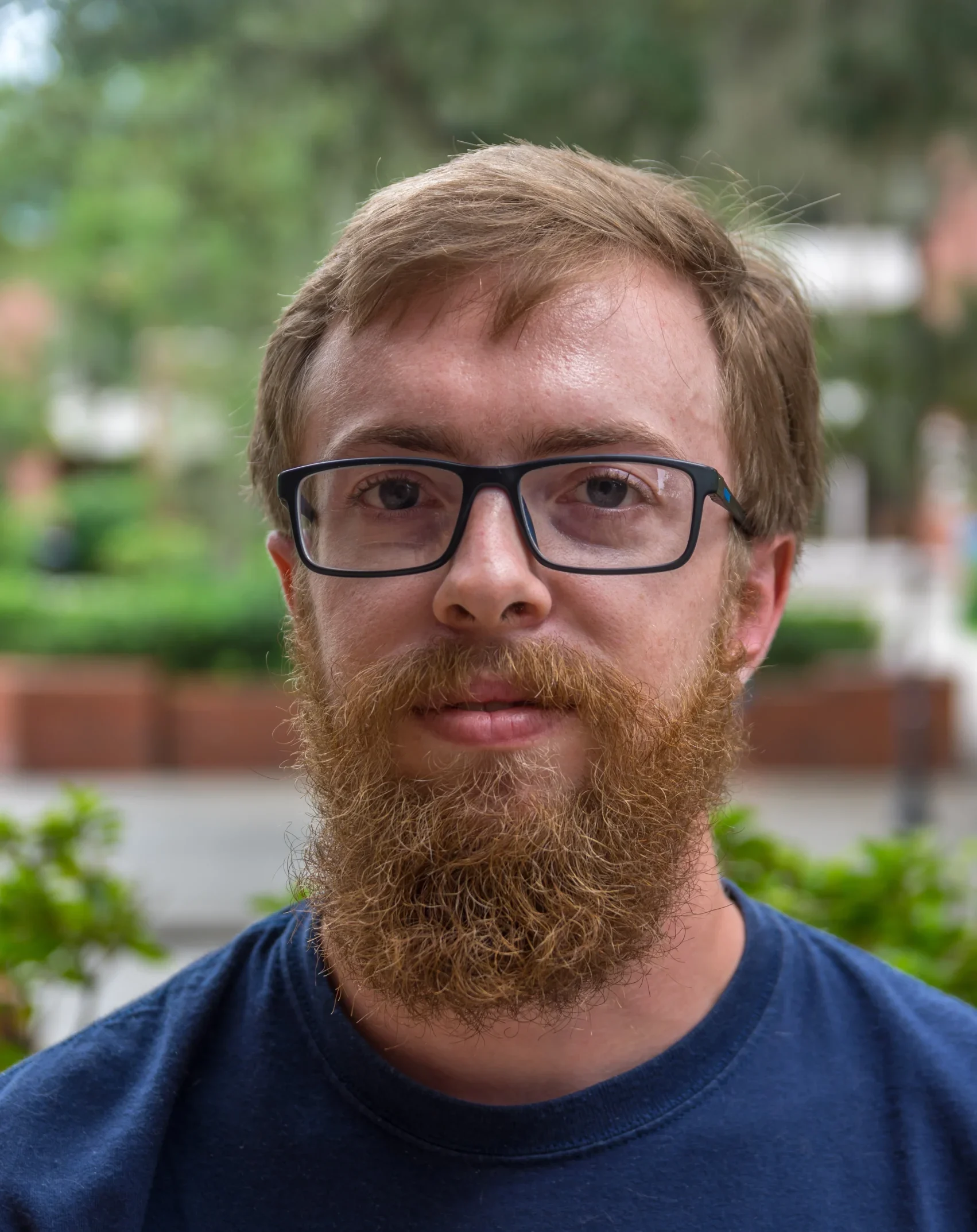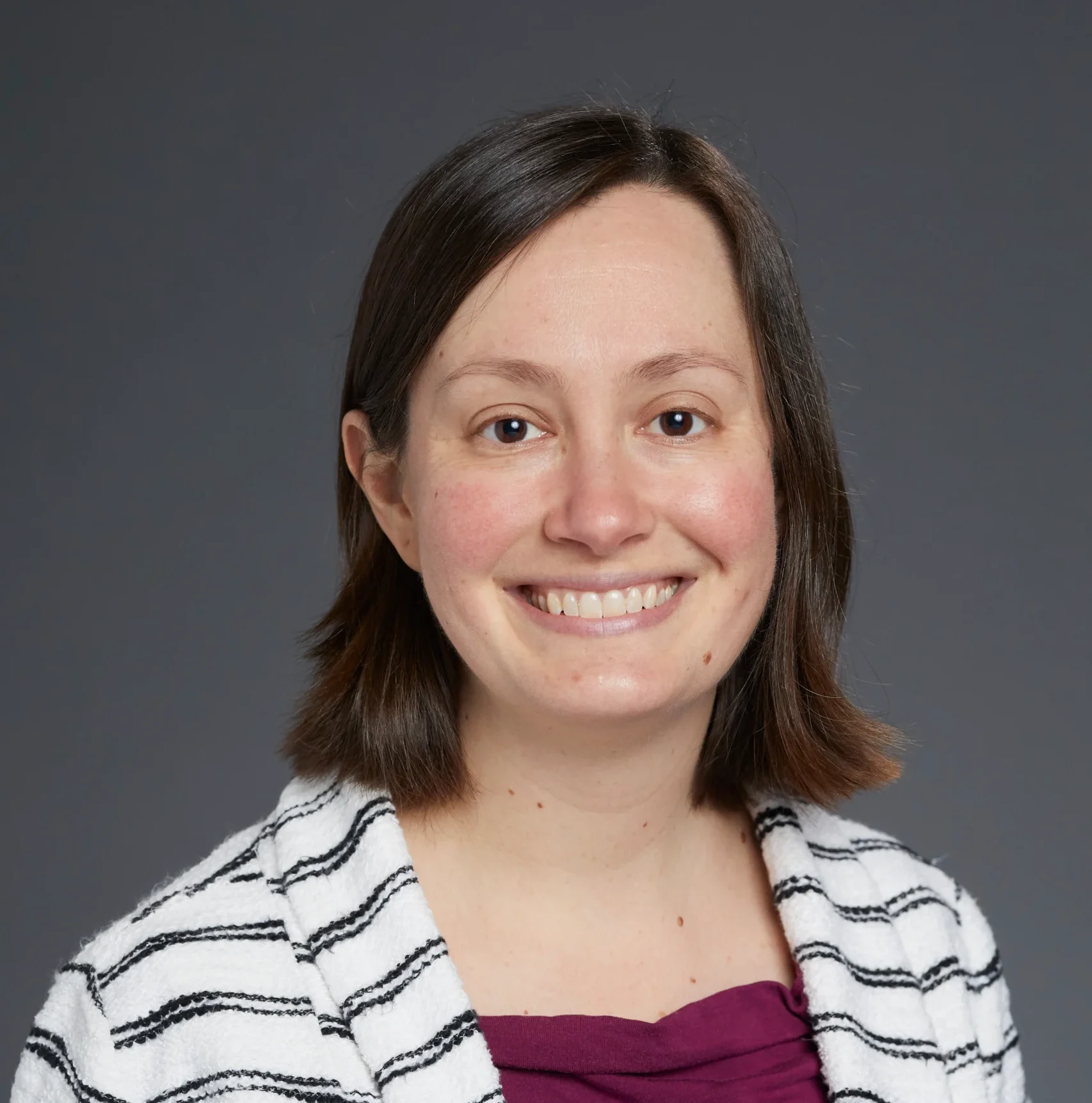Harvard Chan NIEHS Center for Environmental Health
The Harvard Chan National Institute of Environmental Health Sciences (NIEHS) Center for Environmental Health is a coordinated set of resources and facilities supporting environmental health research and training activities throughout the greater Boston area. The center promotes integration between basic and applied environmental science, and fosters collaborations that cross departmental and institutional boundaries.
Building 1-1402
Our People
Learn more about our Center leadership, members, staff, and advisory committees below.
Center Leadership
Center Members
My research is motivated by a desire to alleviate environmental health disparities. A question we frequently ask in public health is: Why does place matter? In an effort to answer this question, my work aims to identify the specific aspects of housing, communities, and neighborhoods that shape an individual’s health. Can we understand the specific causal pathways that lead to health-relevant exposures, and can we ultimately intervene to mitigate them? How do these mechanisms lead to exposure and health disparities which burden low-income communities? Both theoretical models and empirical evidence reveal that disparities in environmental exposures can be significant. Understanding key determinants of multiple exposures can aid in developing policies to reduce these disparities.
Associate Professor
Director, Harvard Healthy Buildings Program (ForHealth.org)
Director, Public Health for Business Leaders
Commissioner, The Lancet COVID-19 Commission
Chair, The Lancet COVID-19 Commission Task Force on Safe Work, Safe Schools, and Safe Travel
Harvard University Coronavirus Advisory Group
Harvard Presidential Committee on Sustainability (Co-Chair, 2050 Sub-Committee)
Deputy Director, Harvard Education and Research Center for Occupational Safety & Health
Lecturer in Medicine, Department of Medicine, Harvard Medical School
Director of Statistical Education, TIMI study group, Brigham and Women’s Hospital
Lecturer, Department of Environmental Health, Harvard T.H. Chan School of Public Health

Marcia Castro is Andelot Professor of Demography, chair of the Department of Global Health and Population, director of the Brazil Studies Program of the David Rockefeller Center for Latin American Studies (DRCLAS) at Harvard University, associate faculty of the Harvard University Center for the Environment, and faculty member of the Harvard Center for Population and Development Studies.
Her research focuses on the development and use of multidisciplinary approaches to identify the determinants of infectious disease transmission in different ecological settings to inform control policies. She has more than 20 years of research experience in the Brazilian Amazon, with a strong record in conducting household surveys and thorough knowledge of the local culture. Furthermore, she has more than 15 years of collaboration with Brazilian researchers, health secretariats, and the ministry of health, particularly related to infectious diseases. Currently, Castro has projects on malaria, COVID-19, arboviruses, infant/child mortality and development, and climate change in the Brazilian Amazon. Specifically, she has been assessing the spatiotemporal pattern of COVID-19 spread in Brazil, mortality and fertility changes due to the pandemic, risk factors for mortality, and vaccine effectiveness.
My research focuses on understanding how nutritional and lifestyle factors affect human reproduction and reproductive milestones throughout the life course, and how these events, in turn, impact other aspects of health. Over the last decade, this broad interest has focused primarily on understanding how nutrition impacts human fertility. More recently, my work has expanded to understand how reproductive events impact health throughout life.
The overarching goal of my infertility research is to identify modifiable lifestyle factors that may improve fertility in humans. Towards achieving this goal, I have developed and adapted a series conducted population-based and hospital-based epidemiologic studies which, together, allow a comprehensive examination of the relationship between nutrition and fertility. My work in population-based cohorts has included the identification of nutritional risk factors for infertility and conditions associated with infertility or decreased fecundity such as endometriosis, spontaneous abortion and ectopic pregnancy, as well studies of how nutrition relates to semen quality and other markers of testicular function in healthy young men. My parallel work among couples undergoing infertility treatment, which has primarily taken place at the Massachusetts General Hospital Fertility Center, has focused on understanding how pre-treatment diet of both the female and the male partner influence their chances of a successful treatment.
My research agenda
David Christiani, MD, MPH, MS, is the Elkan Blout Professor of Environmental Genetics with the Harvard TH Chan School of Public Health and Professor of Medicine at Harvard Medical School. He earned his MD in 1976 from Tufts University, and an MS and MPH from the Harvard School of Public Health. He did his post-graduate medical training at Boston City Hospital and the Massachusetts General Hospital in Boston.
Professor Christiani’s major research interest lies in the interaction between human genes and the environment. In the emerging field of molecular epidemiology, he studies the impact of humans’ exposure to pollutants on health, as well as the how genetic and acquired susceptibility to these diseases along with environmental exposures can lead to acute and chronic pulmonary and cardiovascular disease. He is also developing new methods for assessing health effects after exposure to pollutants and has is very active in environmental and occupational health studies internationally.

Dr. Coull’s current research interests fall into the broad areas of categorical data analysis and semiparametric regression modeling. Recent topics in the analysis of categorical data include capture-recapture mixture models, random effect models for multiple discrete binary outcomes, confidence intervals for a binomial proportion, and order-restricted methods for stratified contingency tables. In the area of semiparametric regression modeling, he has focused on the development of such models for complex data structures often encountered in public health settings, such as cross-over and longitudinal settings.
Dr. Coull is also involved in collaborative research in environmental health. Current projects focus on the health effects of air pollution and the interrelationship between the microbial community and pollutants in the New Bedford Harbor area.
Dr. Angie Cradock is a Principal Research Scientist and the Deputy Director of the Prevention Research Center on Nutrition and Physical Activity at the Harvard T.H. Chan School of Public Health (HPRC). The mission of the HPRC is to work with community partners to develop, implement, evaluate, and disseminate cost-effective strategies that will improve population nutrition and physical activity, prevent excess weight gain and chronic disease, and advance health equity.
Dr. Cradock’s research primarily focuses on the social, policy, and environmental factors associated with physical activity and nutritions behaviors among youth. Specifics area of interest include 1) using community-based participatory research strategies to foster partnership and innovation in promoting child health; 2) implementing and testing policy, organizational, and systems change interventions to improve nutrition and physical activity behaviors; and 3) using economic analysis to identify cost-effective interventions to address nutrition and physical activity behaviors and to prevent obesity.
Currently, Dr. Cradock serves as the Co-Principal Investigator of the CHOICES (Childhood Obesity Intervention Cost-Effectiveness Study) Project. This project has modeled the cost-effectiveness of interventions that can improve children’s nutrition and physical activity and reduce the prevalence of obesity.
Dr. Douglas W. Dockery is a prominent figure in environmental epidemiology, currently the John L. Loeb and Frances Lehman Research Professor, Emeritus of Environmental Epidemiology at the Harvard T.H. Chan School of Public Health. With a career spanning five decades, Dr. Dockery has significantly influenced the understanding of how air pollution, particularly fine particulate matter, affects human health.
He received a B.S. in physics from the University of Maryland and an M.S. in meteorology from the Massachusetts Institute of Technology. He then earned his ScD in environmental health from the Harvard School of Public Health, laying the groundwork for a career that would intertwine environmental science and public health.
Dr. Dockery’s seminal work began with the Harvard Six Cities Study, for which he served as a Principal Investigator. Initiated in the late 1970s, this study provided groundbreaking evidence that linked air pollution, specifically fine particulate matter, to an increase in mortality rates and a reduction in life expectancy across different U.S. cities. This research demonstrated how communities exposed to higher levels of particulate pollution suffered from greater health challenges, including increased mortality rates, respiratory issues, and cardiovascular problems. This study’s findings have become central to environmental health policies, influencing regulatory standards set by the U.S. Environmental Protection Agency and the World Health Organization.
Dr. Francesca Dominici is the Clarence James Gamble Professor of Biostatistics, Population and Data Science at the Harvard T.H. Chan School of Public Health and Director of the Harvard Data Science Initiative at Harvard University. She is a member of the National Academy of Medicine and of the International Society of Mathematical Statistics. In 2024, she was named by TIME100 Health as one of the most influential scientists in global health in the world. Before being appointed founding Director of the Harvard Data Science Initiative, she was Senior Associate Dean for Research at the Harvard TH Chan School of Public Health. Dr. Dominici is also the founder and lead Principal Investigator (PI) for the National Studies on Air Pollution and Health Group (NSAPH), as well as a co-founding PI and leader for the BUSPH-HSPH Climate Change and Health Research Coordinating Center, CAFÉ.
Dr. Dominici’s research has focused on machine learning, Artificial Intelligence, causal inference, and data science to impact climate and environmental policy. Her air pollution studies have directly and routinely impacted air quality policy, leading to more stringent ambient air quality standards in the U.S. Her work has been covered by the New York Times, the Los Angeles Times, the BBC, the Guardian, CNN, and NPR.


Dr. Peng Gao joins the Department of Environmental Health at the Harvard T.H. Chan School of Public Health in November 2024 as an Assistant Professor of Environmental Health and Exposomics. Previously, Dr. Gao was Assistant Professor in the Department of Environmental and Occupational Health at the School of Public Health at the University of Pittsburgh, where he also held an appointment as Assistant Professor in the Department of Civil and Environmental Engineering at the Swanson School of Engineering. Dr. Gao received his master’s degree in chemistry from Case Western Reserve University and his doctoral degree in Soil and Water Sciences from the University of Florida. After completing postdoctoral training at Stanford University School of Medicine, Dr. Gao began to work in exposomics, which examines the holistic impact of a person’s environmental exposure totality over their lifetime. His research using innovative exposomics techniques in Allegheny County, Pennsylvania, has contributed significantly to our understanding of environmental influences on various respiratory diseases, including asthma, lung cancer, and pulmonary arterial hypertension.
Recently, following a large chemical spill and combustion event in East Palestine, Ohio, his team collaborated with local community partners to investigate the post-accident chemical exposome profiles in the impacted areas. Collectively, his research has provided comprehensive assessments of the fate and transport of contaminant



I am an ecologist and epidemiologist interested in the interface of ecosystem service provisioning and human health, specifically in the context of global trends in biodiversity loss and ecosystem transformation. Since 1999, I have been conducting ecological and public health research in Madagascar. Most broadly, I am interested in local people’s dependence on natural resources for obtaining adequate health. This interest has led to various studies into connections between marine and terrestrial wildlife consumption and the incidence of micronutrient deficiencies, the importance of botanical ethnomedicines and geophagy to local health, and the eco-epidemiology of malaria and the human microbiome given current trends in biodiversity loss and land use change. Beyond Madagascar, I have been leading a collaborative research program that evaluates the connections among climate change, fisheries management and ocean governance, and food security and human nutrition in coastal populations around the world. Given trends in mass fisheries declines, coral bleaching, and raising sea surface temperatures that will drive fisheries away from the Equator and toward the Poles, food-insecure populations across the globe will be deprived of a critical nutritional resource. Our group tackles this subject by modeling potential health futures and determining what types of interventions may be able to buffer against these impacts.


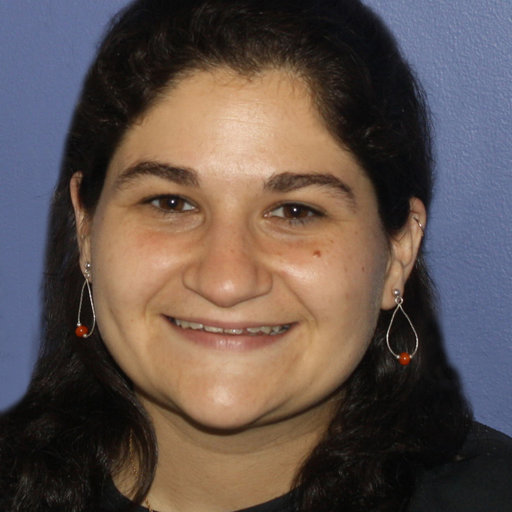
Dr Hauser’s research interests are in the fields of reproductive, perinatal and pediatric epidemiology. His research specifically focuses on the effect of environmental chemicals on male and female fertility, pregnancy outcomes and children’s health. For the past twenty years, he led the NIH funded study, referred to as the Environment and Reproductive Health (EARTH) study. The EARTH study investigates the effects of chemicals classified as endocrine disruptors on male and female reproductive health endpoints. Examples of specific chemicals of interest include persistent compounds (i.e., flame retardants, PCBs and DDT), and non-persistent chemicals including pesticides, phthalates, parabens and phenols. The EARTH study was conducted in collaboration with physicians and staff from the Massachusetts General Hospital, Harvard Medical School.
He is currently conducting an NIH funded study on the effect of maternal and paternal preconception exposures and maternal prenatal exposures to environmental chemicals on children’s health. His research team is collecting information on somatic growth, metabolic health and neurobehavioral outcomes. This study, referred to as the Preconception Environmental exposure And Childhood health Effect (PEACE) study, is co-lead with faculty from Brown University School of Public Health.
Sonia Hernandez-Diaz, MD, DrPH is a Professor of Epidemiology at the Harvard T.H. Chan School of Public Health. Her area of interest is drug safety evaluation from non-randomized data, with a special emphasis on the design, conduct, and analysis of studies in pregnant women and their infants. Examples of her work include inquiries of the comparative safety of psychotropics for pregnant women and their offspring using real world evidence from both pregnancy registries and large healthcare databases. She is Past-President of the International Society for Pharmacoepidemiology and the Society for Perinatal and Pediatric Epidemiology Research; and serves as a Special Government Employee for the FDA Drug Safety and Risk Management Advisory Committee (current Chair), as a member of the NICHD Pregnancy & Neonatology (PN) Study Section, and as member of the Teratogenic Information Services (TERIS) Advisory Board. Through her service to public health institutions she has contributed to the translation of research into policy and actionable recommendations for stakeholders.

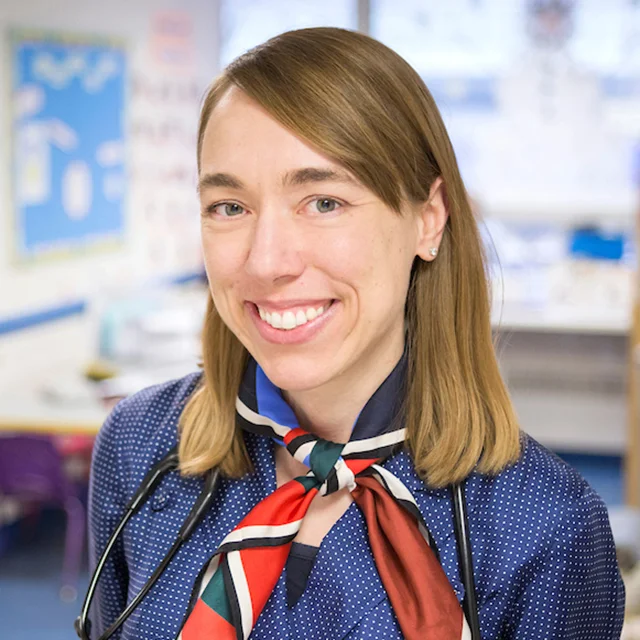

Dr. Koutrakis’ research activities focus on the development of human exposure measurement techniques and the investigation of sources, transport, and the fate of air pollutants. In collaboration with his colleagues in the Environmental Chemistry Laboratory, he has developed ambient particle concentrators and high volume samplers that can be used to conduct human and animal inhalation studies. He has also developed a personal ozone monitor, a continuous fine particle measurement technique and several other sampling methods for a variety of gaseous and particulate air pollutants. These novel techniques have been used extensively by air pollution scientists and human exposure assessors in United States and worldwide.
Dr. Koutrakis has conducted a number of comprehensive air pollution studies in the United States, Canada, Spain, Chile, Kuwait, Cyprus and Greece that investigate the extent of human exposures to gaseous and particulate air pollutants. Other research interests include the assessment of particulate matter exposures and their effects on the cardiac and pulmonary health.
Dr. Koutrakis is the Head of the Exposure, Epidemiology and Risk Program and the Director of the EPA/Harvard University Center for Ambient Particle Health Effects.
Nancy Krieger is Professor of Social Epidemiology, Department of Social and Behavioral Sciences, at the Harvard T.H. Chan School of Public Health and Director of the HSPH Interdisciplinary Concentration on Women, Gender, and Health. She has been a member of the School’s faculty since 1995. Dr. Krieger is an internationally recognized social epidemiologist (PhD, Epidemiology, UC Berkeley, 1989), with a background in biochemistry, philosophy of science, and history of public health, plus 30+ years of activism involving social justice, science, and health. In 2004, she became an ISI highly cited scientist, a group comprising “less than one-half of one percent of all publishing researchers, with her ranking reaffirmed in the 2015 update.” In 2013, she received the Wade Hampton Frost Award from the Epidemiology Section of the American Public Health Association, and in 2015, she was awarded the American Cancer Society Clinical Research Professorship. In 2019, Dr. Krieger was ranked as being “in the top 0.01% of scientists based on your impact” for both total career and in 2017 by a new international standardized citations metrics author database, including as #1 among the 90 top scientists listed for 2017 with a primary field of public health and secondary field of epidemiology (https://doi.org/10.1371/journal.pbio.3000384)
Dr. Francine Laden is an environmental epidemiologist, who has authored approximately 300 peer-reviewed publications focusing on environmental epidemiology of chronic diseases, including cancer, respiratory and cardiovascular disease. Her research has or is concentrated on the following categories of exposures: air pollution (from ambient and occupational sources), persistent organic pollutants (POPs; organochlorines), secondhand smoke, temperature, and the contextual environment (e.g. built environment and green spaces). She is specifically interested in the geographic distribution of disease risk, incorporating geographic information system technology into large cohort studies to explore risk factors such as the built environment and indicators of socioeconomic status, as well as air pollution. She has published key papers on the association of ambient particulate matter and all cause and cardiovascular mortality in the landmark Harvard Six Cities Study and the Nurses’ Health Study and on the association of diesel exhaust exposures and lung cancer mortality in the trucking industry.
Dr. Laden is a Professor of Environmental Epidemiology and Associate Chair of the Department of Environmental Health and the Director of the NIH/NIEHS T32 Program for Training in Environmental Epidemiology at the Harvard T.H. Chan School of Public Health, and an Associate Professor of Medicine at the Harvard Medical School and Brigham & Women’s Hospital.

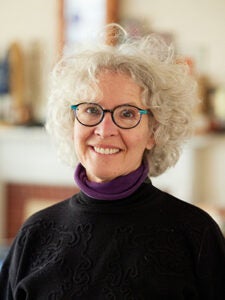
Xihong Lin is Professor and Former Chair of the Department of Biostatistics, Coordinating Director of the Program in Quantitative Genomics at the Harvard T. H. Chan School of Public Health, and Professor of the Department of Statistics at the Faculty of Arts and Sciences of Harvard University, and Associate Member of the Broad Institute of MIT and Harvard.
Dr. Lin’s research interests lie in the development and application of scalable statistical and machine learning methods for the analysis of massive and complex genetic and genomic, epidemiological and health data. Some examples of her current research include analytic methods and applications for large scale Whole Genome Sequencing studies, biobanks and Electronic Health Records, techniques and tools for whole genome variant functional annotations, analysis of the interplay of genes and environment, multiple phenotype analysis, polygenic risk prediction and heritability estimation. Additional examples include integrative analysis of different types of data, Mendelian Randomization, causal mediation analysis and causal inference, federated and transferred learning, single cell genomics, analysis of epidemiological and complex observational studies, and analysis of COVID-19 epidemic data.

My laboratory studies molecular mechanisms underlying complex gene-environment interactions in multigenic human diseases such as asthma and neurodegeneration, focusing in part on the emerging role of extracellular vesicles in disease pathogenesis, prevention, and therapeutics. Research in my laboratory is supported by multiple NIH R01 grants and a Program Project grant as well as gifts from private companies and foundations. Here are some examples of our recent work.
Shruthi Mahalingaiah is an associate professor of environmental, reproductive, and women’s health in the Department of Environmental Health at the Harvard T.H. Chan School of Public health. She serves clinically as a physician specializing in ovulation disorders, reproductive endocrinology and infertility at the Massachusetts General Hospital in the Department of Obstetrics and Gynecology.
Dr. Mahalingaiah’s research seeks to understand the association of environmental and modifiable risk factors on human reproduction as they pertain to the etiology and prevention of gynecological disease. Through physiology-informed research, she focuses on identifying environmental exposures associated with the development of polycystic ovary syndrome (PCOS) and metabolic sequelae. Her research encompasses three distinct areas: 1.) Air pollution and gynecologic disease incidence including cardiometabolic risk across the reproductive lifespan; 2.) Environmental toxicant exposures in the perinatal, perimenarchal, and adult time window with placental disease and ovulatory disorders; and 3.) Creation of diverse cohorts to study women’s health across the reproductive lifespan. She is currently funded by the March of Dimes, National Science Foundation, and is on the leadership team of the Apple Women’s Health study.

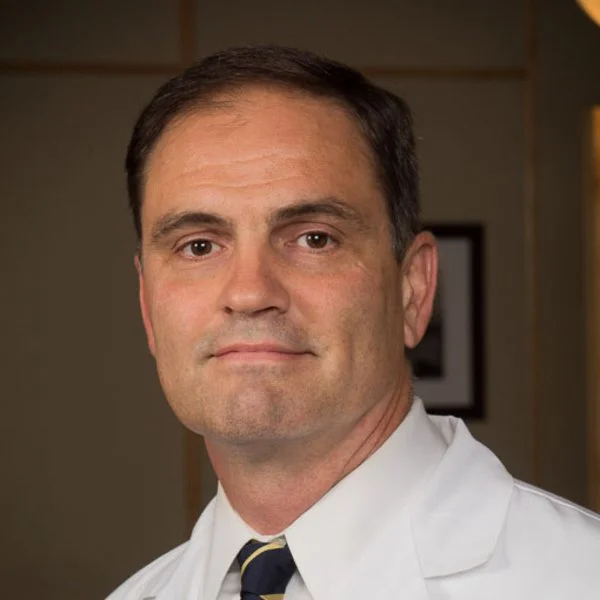
Dr. Minguez-Alarcon is a Spanish epidemiologist with joint appointments both at the Harvard Medical School/Brigham and Women’s Hospital (Assistant Professor of Medicine/Associate Epidemiologist) and the Harvard TH Chan School of Public Health (Department Associate). Her research focuses on identifying chemical and non-chemical stressors of human fertility, reproductive and cardiometabolic health with special interest in chemical mixtures and diet-chemical interactions. Dr. Mínguez-Alarcón is the PI of the NIH funded Longitudinal Investigation of Health and Diseases after Infertility (LIHDI) Study, which is prospectively exploring chemical exposures during reproductive years in relation to long-term cardiovascular and metabolic health. She is also the PI of another NIH R01 that evaluates paternal pesticide exposure in relation to couple’s pregnancy outcomes and associations with sperm and leukocyte epigenome. She brings her expertise to the Science of the Total Environment (STOTEN) journal as an Associate Editor and the Reproductive, Perinatal and Pediatric Health (RPPH) NIH study section as a Grant Reviewer.
Dr. Kari Nadeau is the Chair of the Department of Environmental Health at Harvard School of Public Health and John Rock Professor of Climate and Population Studies. She practices Allergy, Asthma, Immunology in children and adults. She has published over 400+ papers, many in the field of climate change and health. Dr. Nadeau, with a team of individuals and patients and families, has been able to help major progress and impact in the clinical fields of immunology, infection, asthma and allergy. Dr. Nadeau is a member of the National Academy of Medicine and the U.S. EPA Children’s Health Protection Committee.
For more than 30 years, she has devoted herself to understanding how environmental and genetic factors affect the risk of developing allergies and asthma, especially wildfire-induced air pollution. Her laboratory has been studying air pollution and wildfire effects on children and adults, including wildland firefighters. Many of the health issues involving individuals and the public are increasing because of global warming, sustainability practices, and extreme weather conditions. She oversees a team working on air pollution and wildfire research along with a multidisciplinary group of community leaders, firefighters, engineers, scientists, lawyers, and policy makers. Dr. Nadeau was appointed as a member of the U.S. Federal Wildfire Commission in 2022.
Why can some people tolerate exposure to DNA damaging agents such as radiation, sunlight, reactive oxygen species and tobacco smoke, while others develop disease? Why do some cancers respond to radiation and chemotherapy, while others do not? Research in the Nagel lab is focused on finding answers to these questions by studying DNA repair. We are using novel multiplex, cell-based DNA repair assays (FM-HCR) together with biochemical and biophysical approaches to understand DNA repair at the molecular, cellular and population levels, with the long-term goal of advancing personalized prevention and treatment of disease.
One area of research is focused on defining the structural and mechanistic biology of the molecular machines that repair DNA damage. This project is aimed at understanding how mutations affect the function of DNA repair complexes, and identifying cancer-specific therapeutic targets.
A second major initiative is to measure DNA repair capacity in cancer cells and generate mathematical models that predict whether cancer cells will be sensitive to killing with specific DNA damaging agents. The goal of this project is to identify personalized cancer therapy strategies.
A third major interest involves measuring inter-individual differences in DNA repair capacity in non-cancerous cells.

Amruta Nori-Sarma is an Assistant Professor of Environmental Health and Population Sciences at the Harvard T.H. Chan School of Public Health. As an environmental epidemiologist, Dr. Nori-Sarma studies the relationship between environmental exposures associated with climate change and health outcomes in vulnerable communities. Dr. Nori-Sarma aims to understand the impacts of interrelated extreme weather events on mental health across the US utilizing large claims datasets. She also has an interest in evaluating the success of policies put in place to reduce the health impacts of climate change.
Additionally, Dr. Nori-Sarma serves as one of the leads of the CAFE RCC, the research coordinating center of the NIH Climate Change and Health Initiative. CAFE, a joint effort with the BU School of Public Health, aims to bring together and amplify the work of a more diverse community of practice in climate and health.
My research focuses on the role of airway epithelium in the lung. The airway epithelium is the first line of defense against external stimuli. Airway epithelial cells lining on the airway epithelium contribute to homeostasis in the lung, but when they are exposed to excessive biochemical or physical stimuli, the normal defense mechanism turns into the progression of various pathophysiologic conditions. Airway epithelial cells also play important roles in innate and adaptive immunities and inflammation.
Much of the morbidity and mortality associated with persistent asthma is attributable to progressive and irreversible remodeling of the airway wall. Most theories concerning airway remodeling argue that the remodeling process is triggered in response to inflammatory mediators and cytokines.
We hypothesize that airway remodeling is triggered in response to the mechanical stress imposed on the airway epithelium during bronchoconstriction.
We use a compressive in vitro model system (Figure 1). In this system, primary human bronchial epithelial cells are grown in an air-liquid interface (ALI) culture and subjected to compressive stress, which is modeled through the application of a transepithelial pressure gradient at a magnitude of 20 to 30 cm H2O. This magnitude of stress is similar to the magnitude that bronchoconstriction imposes on the airway epithelium, and is significantly higher than the magnitude experienced during normal breathing.
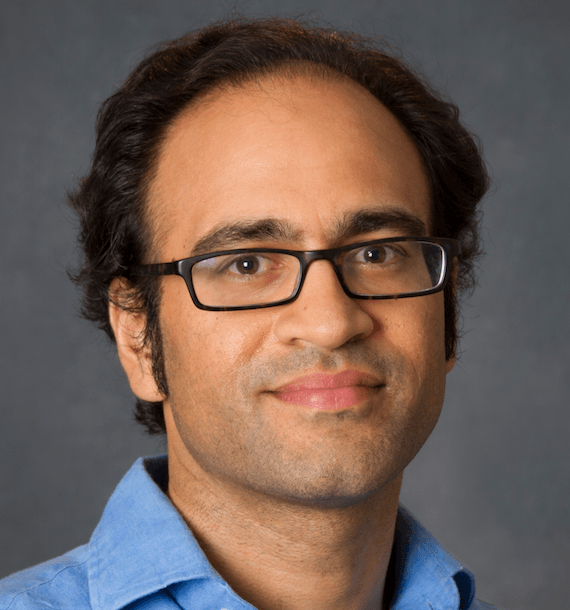


Dr. Mary B. Rice MD MPH is the director of the Center for Climate, Health, and the Global Environment (Harvard Chan C-CHANGE) and the Mark and Catherine Winkler Associate Professor of Environmental Respiratory Health at Harvard T.H. Chan School of Public Health. She is a pulmonary critical care physician and the director of the Beth Israel Deaconess Medical Center (BIDMC) Institute for Lung Health, where she is an associate professor of medicine at Harvard Medical School and director of research for the division of pulmonary, critical care and sleep medicine.
Rice’s area of investigation focuses on the influence of environmental exposures, especially air pollution and climate change, on the respiratory health of children and adults and the development of interventions to mitigate these health effects. She is the principal investigator of a National Institutes of Health (NIH)-funded clinical trial of home air purification for patients with chronic obstructive pulmonary disease, and she leads the environmental health research program of the American Lung Association Lung Health Cohort. She also co-leads the Center for Climate: Equitable and Accessible Research-based Testing for Health (C-EARTH), an NIH-funded P20 Center at Harvard Chan School, which aims to bring sustainable climate solutions to heat-stressed, low-income communities around the globe.
My research focuses on mental and cognitive health, including causes and consequences of autism, posttraumatic stress disorder (PTSD), depression, and cognitive decline. I also study childhood abuse and its consequences, including PTSD, depression, intimate partner violence, and health-risk behaviors. I am particularly interested in the effects of childhood abuse on health across generations.
I am currently Principal Investigator of an NIH-funded study seeking to understand why children of women exposed to childhood abuse exhibit increased risk for a wide array of neurodevelopmental deficits, including anxiety, depression, autism, and attention-deficit hyperactivity disorder (ADHD). The study is examining biological dysregulation during pregnancy in hormonal function and immune function. To date, the study has documented that women who experienced abuse carry somewhat higher genetic risk for a variety of neuropsychiatric disorders than women who have not.
“What happens in childhood — like a child’s footprints in wet cement — commonly lasts throughout life. Time does not heal; time conceals.”
– V. Felitti
Lisa A. Robinson’s research and teaching focus on the conduct of benefit-cost analysis, particularly for policies with outcomes that cannot be fully valued using market measures. She has led numerous assessments of the costs, benefits, and other impacts of environmental, health, and safety policies and regulations, developed related methods, and drafted guidance documents. She co-edited the National Academies book, “Valuing Health for Regulatory Cost-Effectiveness Analysis,” led the creation benefit-cost analysis guidelines for U.S. Department of Health and Human Services regulations and global public health interventions, and developed approaches for estimating the value of mortality risk reductions (the value per statistical life, VSL) for several government agencies and other organizations. She has explored numerous other methodological issues, including the implications of behavioral economics and happiness (subjective wellbeing) research for benefit-cost analysis, approaches for addressing the distribution of impacts across advantaged and disadvantaged groups, and ethical concerns. She applies these methods in high-, middle-, and low-income settings. Her work addresses a variety of policy issues, including responses to vaccine mandates and to hazard warnings as well as the health impacts of climate change.
My research is divided in three main areas: First, I am interested in epidemiology looking at the health consequences of exposure to pollutants. To date this has had two focuses: health effects of lead and health effects of air pollutants. I have recently begun work looking at water contamination.
In lead, I have examined cardiovascular effects of lead exposure in adults, cognitive effects in children, auditory effects in children, and effects of lead on children’s growth. I have also done work on sources of lead exposure, including establishing gasoline lead as the major source of lead exposure in the United States.
My air pollution work has examined both acute and chronic effects of air pollution exposure. Recent research has established that exposure to fine combustion particles in the air at concentrations well below current standards are associated with a range of adverse health effects from increased respiratory symptoms, to increased hospital admissions, to increased deaths. This work has led to a tightening of the U.S. air quality standards.
I have also done considerable work on health effects of ozone exposure. I have several international collaborations underway in this area. Recent work has been focused on the cardiovascular effects of air pollution, and on factors which modify the response to air pollution. Recent work has suggested diabetics are more susceptible, for example.

Dr. Qi Sun’s research is focused on identifying novel biomarkers of diet and environmental exposures and risk of excess weight gain, type 2 diabetes, and cardiovascular disease by integrating the state-of-the-art of omics technologies and nutritional epidemiological approaches. His research has led to the discovery of endogenous metabolites (e.g., very-long chain saturated fatty acids), endocrine disruptors (e.g., bisphenol A and per- or polyfluoroalkyl substances), circulating proteins (e.g., fatty acid binding protein 4 and soluble leptin receptor), and gut microbiome as predictors or modulators of human metabolic diseases. He is also an established nutritional epidemiologist and has led numerous projects to elucidate associations between various dietary factors and cardiometabolic conditions in populations with and without diabetes. His study findings have enhanced the understanding of the biological mechanisms underlying nutrition and metabolic health and contributed to the US dietary guidelines for chronic disease prevention.



Dr. von Stackelberg has long worked at the intersection of science and policy, originally in assessing public health and ecological risks of exposure to environmental contaminants, which expanded to the role of natural systems, expressed as ecosystem services, in supporting well-being, and the subsequent valuation of those ecosystem services to support policy analyses around planetary health. She is a Senior Research Scientist in the Department of Environmental health and the Harvard T.H. Chan School of Public Health, Team Leader for the Biogeochemistry of Global Contaminants Group (Sunderland Lab) at Harvard University, and Director of Research Translation for the Harvard Superfund Research Program (MEMCARE). Her ScD dissertation was based on a contingent valuation survey to monetize the benefit associated with risk reductions to ecological receptors exposed to polychlorinated biphenyls in the environment. She has several risk assessment projects to interpret and map in vitro data to key events in adverse outcome pathways to evaluate specific regulatory health outcomes associated with exposure to per- and polyfluorinated substances (PFAS), heavy organics, mixtures of metals, and emerging contaminants associated with tire wear particles.
As a faculty member with joint appointments in both Biostatistics and Epidemiology, I have focused my research over the last 25 years on environmental epidemiology studies and on HIV-related clinical trials and observational studies, with a common focus on reproductive outcomes and child development. A major focus of my HIV-related research is the safety evaluation of reproductive health outcomes in infants exposed in utero to antiretroviral agents, such as congenital anomalies, preterm birth, and low birth weight, in addition to longer term outcomes such as cardiotoxicity, neurodevelopment and behavioral functioning. My other active area of research is reproductive epidemiology in relation to environmental, nutritional, and other prenatal exposures. I have particular interest in birth and reproductive outcomes associated with prenatal exposures to endocrine disrupting chemicals (EDCs), such as phthalates, dioxins, pesticides, and heavy metals such as lead.
My statistical interests are broad and include mediation analysis, survival outcomes, clustered data, and statistical methods for evaluation of mixtures. I mentor many doctoral and masters students in biostatistics and epidemiology, and also mentor other research staff through my involvement in many collaborative studies.

Blair Johnson Wylie, MD, MPH, is the Founding Director of The Collaborative for Women’s Environmental Health at Columbia University and the Virgil G. Damon Professor of Obstetrics and Gynecology at Columbia’s Vagelos College of Physicians and Surgeons. She also serves as the obstetric consultant to Region 1’s Pediatric Environmental Health Specialty Network (PEHSU). Dr. Wylie received her bachelor’s degree from Princeton University and her medical degree from Harvard Medical School. She studied epidemiology at the Columbia University Mailman School of Public Health, where she received her master’s in public health. She completed her residency in Obstetrics and Gynecology at the University of Washington Medical Center and a fellowship in Maternal-Fetal Medicine at Columbia University.
Dr. Wylie conducts research with a focus on global maternal/child health, with a particular interest in environmental exposures during pregnancy in international settings, such as smoke from cooking fires, pesticides from subsistence farming, and climate-related factors like heat and air pollution. She has ongoing projects in Ghana, Tanzania, Pakistan and India. She is co-Principal Investigator for Columbia University/Aga Khan University Research Unit in the Eunice Kennedy Shriver National Institute of Child Health and Human Development’s Global Network for Women’s and Children’s Health Research. She previously chaired the Society for Maternal-Fetal Medicine’s Global Health Committee and n…
The area of my research interest focuses on the health consequences of exposure to air pollutants and climate change, and environmental health disparities.
My research interests are shaped by my background and training in both epidemiology and statistics, by developing and applying statistical methods for epidemiological investigations. My work has contributed substantially to our understanding of air pollution and climate change-mediated health impacts.
My research is focused on four main topics: (1) the impact of air pollution on mortality and morbidity in adults focusing on cardiovascular disease, and neurological disorders; (2) the assessment of the health consequences of extreme temperatures and other weather parameters on mortality and morbidity, (3) the characterization of susceptibility, vulnerability, and environmental health disparities; and (4) children’s health. In so doing, my work leverages administrative health data, cohort data, sociodemographic and environmental data.

Emeritus Members

Dr. Douglas W. Dockery is a prominent figure in environmental epidemiology, currently the John L. Loeb and Frances Lehman Research Professor, Emeritus of Environmental Epidemiology at the Harvard T.H. Chan School of Public Health. With a career spanning five decades, Dr. Dockery has significantly influenced the understanding of how air pollution, particularly fine particulate matter, affects human health.
He received a B.S. in physics from the University of Maryland and an M.S. in meteorology from the Massachusetts Institute of Technology. He then earned his ScD in environmental health from the Harvard School of Public Health, laying the groundwork for a career that would intertwine environmental science and public health.
Dr. Dockery’s seminal work began with the Harvard Six Cities Study, for which he served as a Principal Investigator. Initiated in the late 1970s, this study provided groundbreaking evidence that linked air pollution, specifically fine particulate matter, to an increase in mortality rates and a reduction in life expectancy across different U.S. cities. This research demonstrated how communities exposed to higher levels of particulate pollution suffered from greater health challenges, including increased mortality rates, respiratory issues, and cardiovascular problems. This study’s findings have become central to environmental health policies, influencing regulatory standards set by the U.S. Environmental Protection Agency and the World Health Organization.
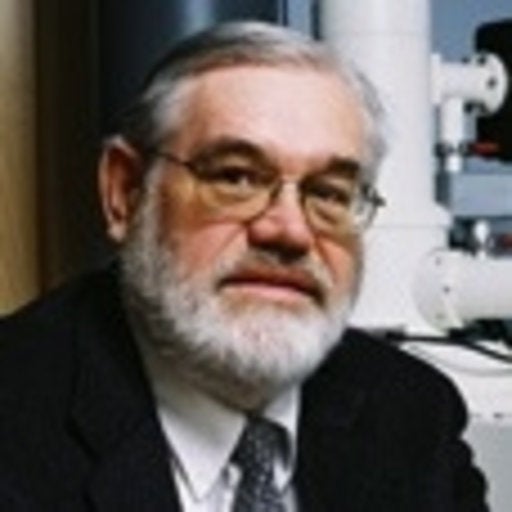

Adjunct Members



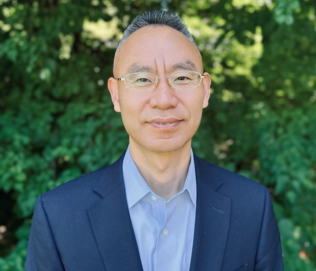
Staff
